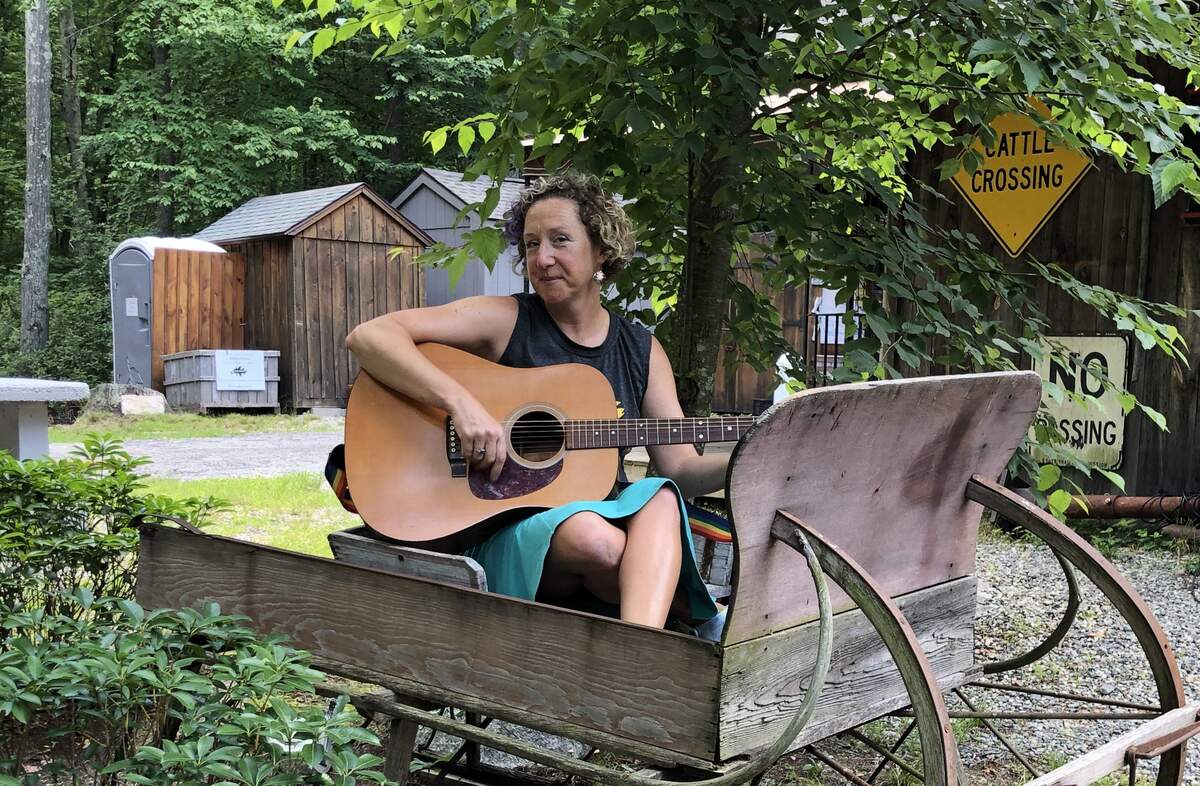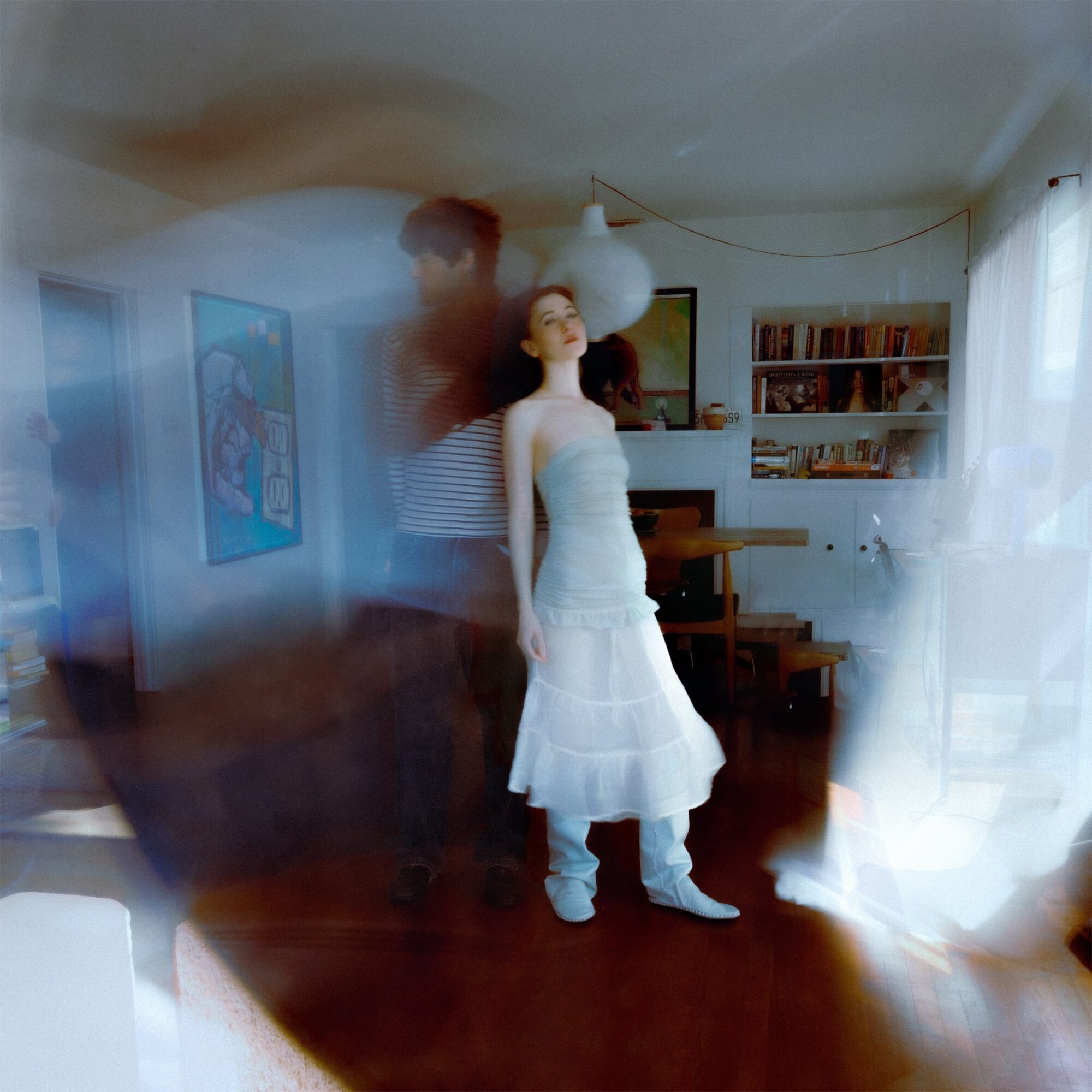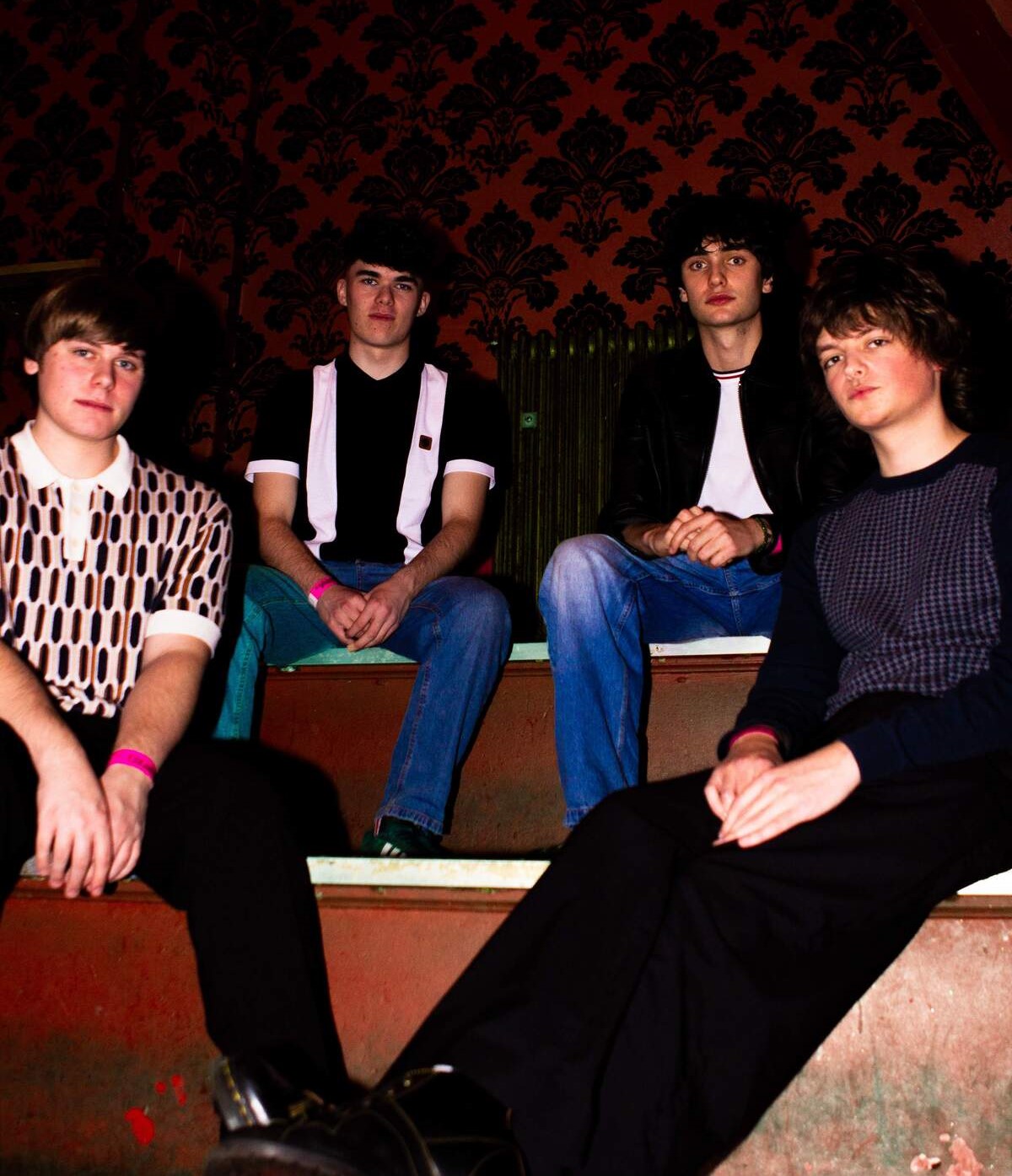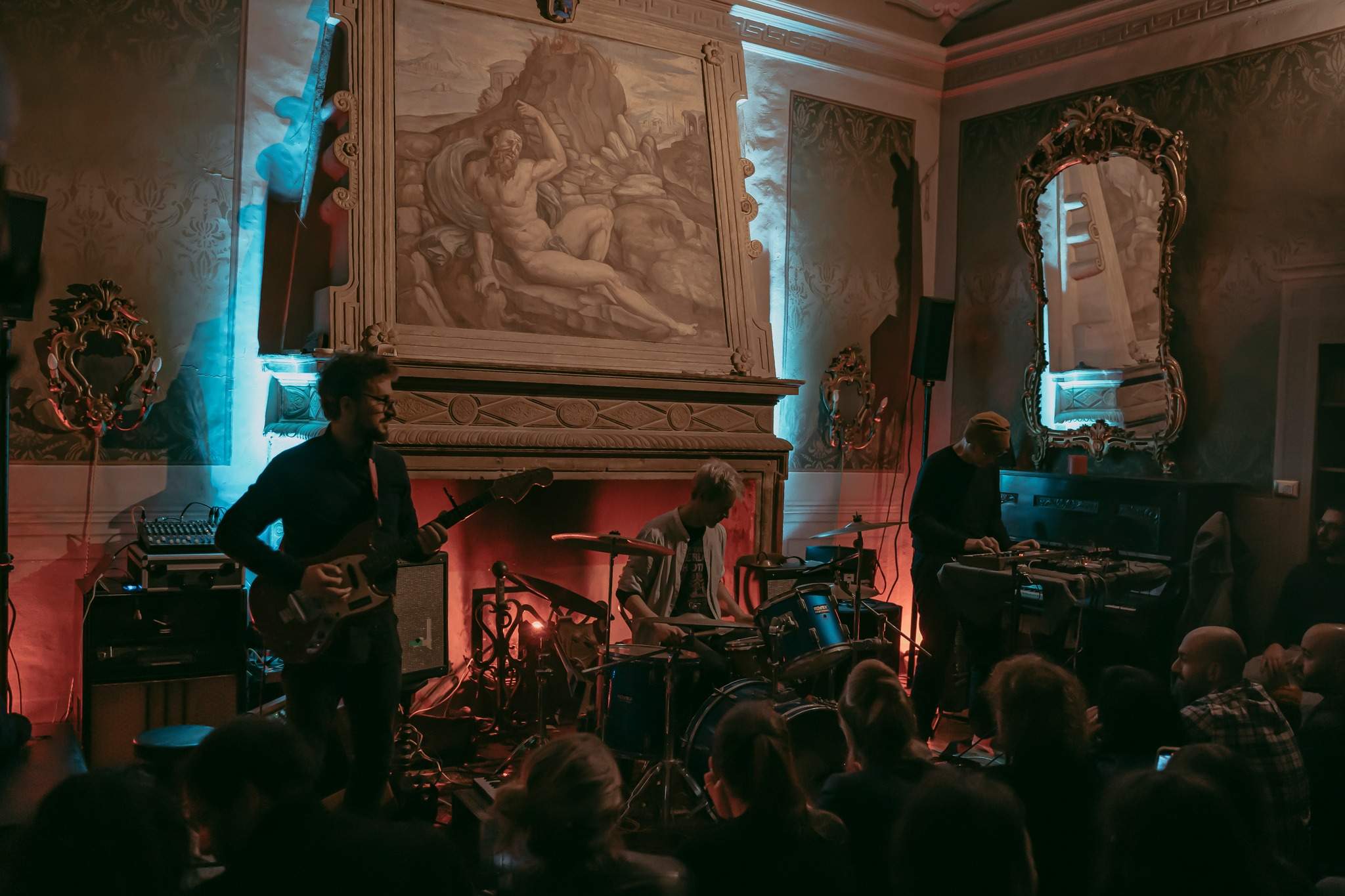Liz Reed’s Ethereal Folk Unfurls on ‘Maybe Kind of World’
Liz Reed is a long-time songwriter and elementary school music teacher hailing from the Northeastern corner of Connecticut.
Known for her gentle pop-folk sound, Reed has 6 self-released albums to her name. Her latest release, ‘Maybe Kind of World,’ has a massive emotional atmosphere, a captured jar of feelings: gentle, ethereal lovingness with an effortless delivery.
This is the artist’s first release on Bigger Beasts Records, which showcases an independent collective of songwriters.
As the soundscape unfolds like a bright yellow evening primrose (sunny and pure), a full quartet of legato strings sets the stage for what is next. Lightfooted, fingerpicked guitars enter, and Liz Reed’s folky, nurturing timbre rises, expands.
“She don’t live in a maybe kinda world, it’s gotta be this, it’s gotta be that…
She’s not a roll with the punches kind of girl
She holds on tight to what she knows.”
We get the sense that this child is not a simple one. “And god save those who try and turn her over…It’s all or nothin’ now, cuz here we go…She’s not a do it half way kind of girl”.
This song is one that everyone who has ever been a daughter or a mother can connect to on a deep level. From flowing soft harmonies of a 5th to the step-wise, short upright bass line, the end result is a balladic, tender tune for a child learning how to navigate life itself.
“And oh, there’s a kid-sized piece of my soul that rolls out the door every time she leaves
It’s all or nothing, cuz here we go, she’s rollin, she’s changing…”
It’s a piece of sonic art that says: You, you unique girl, can always come back here into these arms. I’m scared (and you probably are too), but I know with absolution that you’re going to change the world.
As we enter the bridge, the emotional climate shifts. It says…I see you, I know you, you are a treasure. I understand you, and I always will. The violins change their articulation to a pluckier mood, but then we return to the beginning once more. Then, as the violins offer their final short melisma, and the last guitar hammer on takes place, we can’t help but drink in the purest essencia of maternal elation.
“I most often use personal experiences and pour my heart into my songs”
You mentioned writing your first song at the age of 10. What was it about, and why did you write it?
Liz Reed: The lyrics I remember are “I hurt you, and you hurt me; I was so afraid of losing you…” Love and loss at age ten! I grew up watching sitcoms and listening to pop music on the radio, so I was probably trying to emulate what I’d seen and heard in pop culture. But I also came from a home of divorced parents and of addiction (my dad didn’t get sober until I was 17), so maybe I really was expressing how I was feeling at the time. That song is buried in a box in the attic, I believe (thank goodness, but you have to start somewhere…).
Where did you go to school for music education, and how does teaching music continue to inspire your craft? Have you ever shown your students your original songs?
Northeast Connecticut, born and bred! I studied music education at UConn in Storrs, CT. I spent many years thinking that playing my own songs for my students would be like showing off. However, a writer-friend suggested that if I want them to write their own songs, I have to model good songwriting, so why not use my own material? I’ve used my song ‘Small Potato’ because it’s school appropriate and the kids think the title is funny. I have also written a few songs based on children’s books. My favorite is a song about celebrating differences called “It’s OK to Be A Unicorn.” It’s based on the book of the same title by author/illustrator Jason Tharpe.
How does ‘Maybe Kind of World’ feel similar, and different, to material from your album ‘Tall Trees & Empty Highways’?
I most often use personal experiences and pour my heart into my songs, so here we are again. Much of the material on ‘Tall Trees and Empty Highways’ explores themes of love and parenting as does ‘Maybe Kind of World.’ ‘Tall Trees’ also has a song about the death of my step-father, ‘Cadillac Highway,’ which I have since re-worked and now play on piano instead of guitar. There is also a protest song called “Angel Oak,” which addresses institutional racism, and a semi-protest song titled ‘I Will Grow Into a Tree,’ whose theme is success in the midst of chaos. In the artwork for ‘MayBE KIND of World,’ we used capitalization to convey a message. So both the song and my last album’s titles carry double (triple?) meanings.
What is the furthest place from home that you’ve performed at, and how did it make you feel?
Galway, Ireland this past summer! I brought my guitar on the trip and sought out open mics and what the Irish call “sessions,” (pub performances by a duo or group). I contacted an acquaintance there, and was invited to perform a song at a session at Molly Malone’s in Galway. I sang and played ‘The Water is Wide,’ a traditional folk tune. It felt incredible to connect with a circle of artists through a song familiar to all of us–I was in musician heaven!
Was there one single, defining moment with your daughter or son that sparked this song? Or was it a result of sweeping moments?
Our daughter is a teen on the autism spectrum who thrives on ritual, schedules, and very clear-cut answers to questions. She is a passionate powerhouse of a person, but navigating the intricacies of high school friendships and even our own family relationships is quite a challenge. Being her mom is the hardest thing I’ve ever done, but is also the most rewarding. ‘Maybe Kind of World’ encapsulates my feelings of pride in her successes, but also the anxiety I feel about how the world may treat her when I’m not around.
What is a ‘Maybe’ kind of world? Is the title itself a representation of how neurodivergent people can view the world?
The decisions I’ve faced throughout my life have almost never had an obvious answer; maybe I should vote a certain way, eat a certain way, or behave a certain way, or maybe not. Maybe I should change, or move, or write that song, or maybe not! Making tough decisions gives us all pause, but those of us with typical brains and typical emotional regulatory skills can eventually do it. However, “maybe” is an extremely difficult word and concept for people who need structure and routine in order to feel safe. I have learned how to help calm our neurodivergent daughter when she is faced with uncertainty, anxiety and tough decisions, but it is certainly challenging for both of us.
Finally, what wisdom would you offer to those who are about to become parents?
Always ask for help. There are folks in your community who have been through what you’re experiencing, and most often they want to help. Parenting books never seemed to cover the things that were happening to us: the 6-month-old ate a maple leaf–what do I do? Or the three-year-old never stops moving and I’m exhausted–what do I do? But the aunties and grandmas in my neighborhood and at my church offered advice (“Don’t worry–give him some milk–one leaf won’t kill him.”) and even took my kid so I could nap for an hour. Other people are a valuable resource; use them!
Liz Reed Website / Facebook / YouTube




